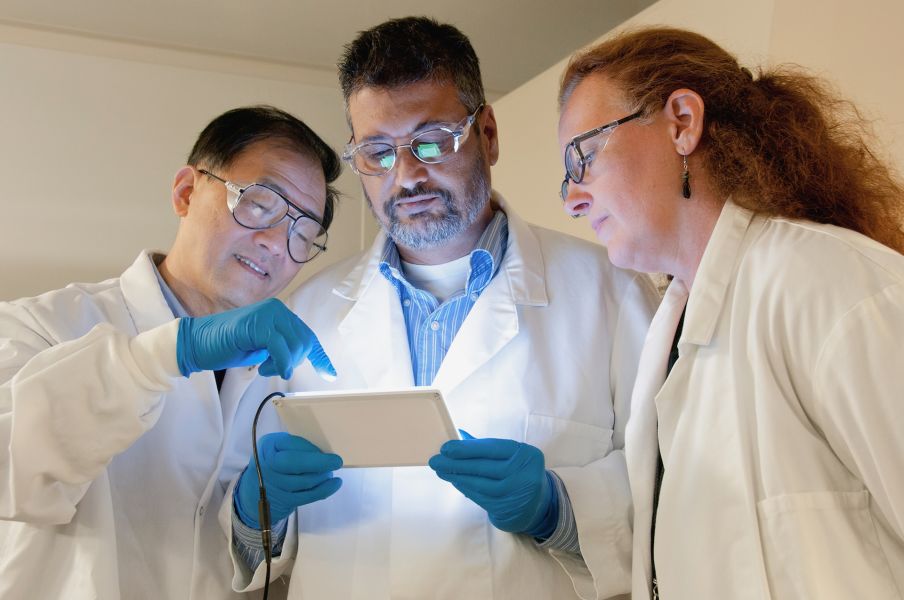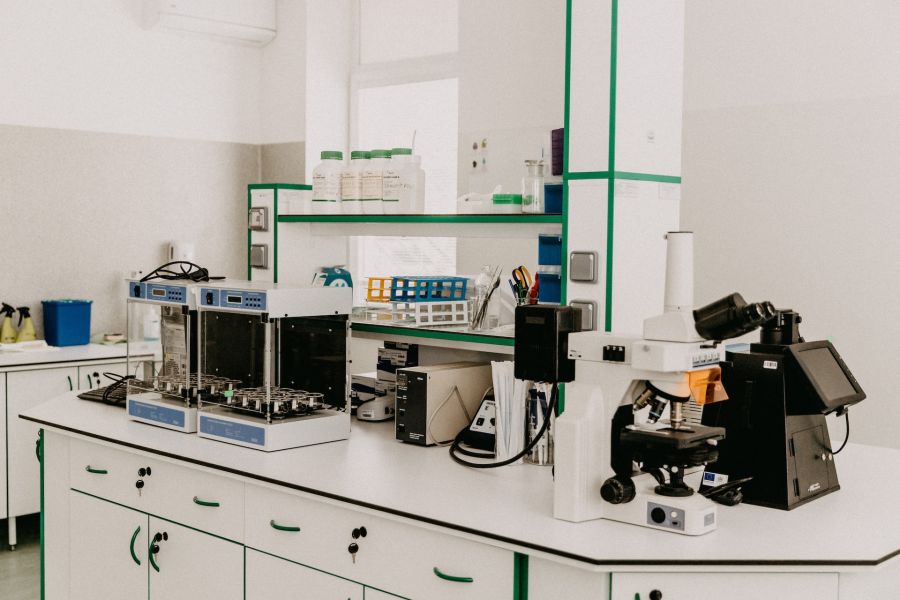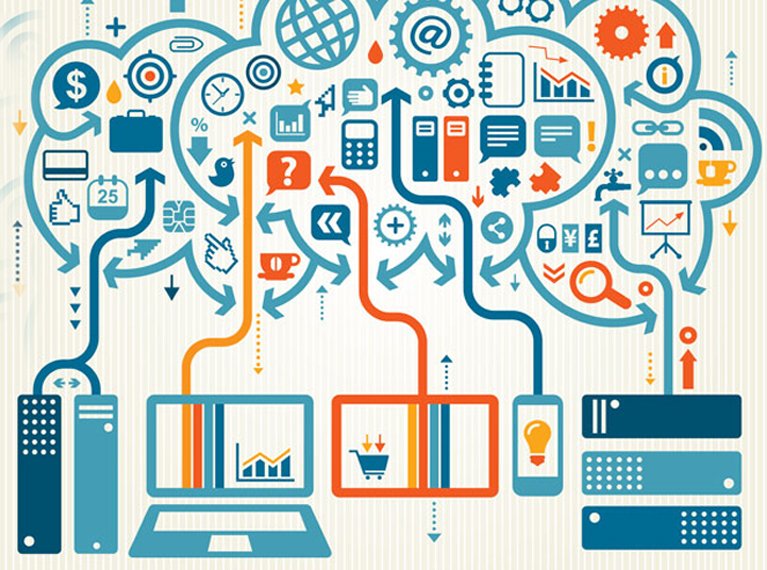In today’s fast-paced world of scientific exploration, laboratories have evolved into hubs of innovation and experimentation. For example, there are more than 30,000 laboratories in operation in the United States, including small independent research facilities as well as substantial medical and academic institutions.
The rapid advancements in technology have not only transformed research methodologies but have also created exciting possibilities for conducting experiments more quickly and precisely. To keep pace with such advancements, laboratories need to harness cutting-edge tech tools in their daily work processes.
In this blog post, we’ll explore seven indispensable tech tools that every modern laboratory should consider adopting to enhance their research capabilities.

Single Cell Dispensers
Single cell dispensers represent state-of-the-art benchtop instruments that are automation-ready and have transformed how researchers manipulate and manage individual cells within laboratory settings. These highly precise devices offer a level of control and accuracy that was once unimaginable, allowing scientists to dispense single cells with the utmost precision. Whether it’s for single-cell genomics, cloning, or cell line development, single cell dispensers provide researchers with the ability to isolate and deposit single cells into various microplates or culture vessels.
Automation-ready, these instruments seamlessly integrate into existing laboratory workflows, saving time and reducing the risk of contamination. Single cell dispensers are essential tools for the advancement of fields like genomics, cell biology, and drug discovery, where single-cell analysis is critical for unraveling the complexities of biology at the individual cell level.
Electronic Laboratory Notebook (ELN)
Say goodbye to the days of scribbling notes in paper lab notebooks that can easily get lost or damaged. The electronic laboratory notebook (ELN) is here to revolutionize the way you record and manage experimental data.
ELNs provide a digital workspace where researchers can securely document their experiments, observations, and protocols. One of the most significant advantages of ELNs is the ability to collaborate in real-time with team members. This fosters seamless teamwork and allows for instant sharing of findings. Additionally, ELNs simplify data retrieval with advanced search capabilities, making it easier to locate specific experiments or data points when needed.
High-Performance Computing (HPC) Clusters
As scientific research increasingly relies on data, computational power requirements have skyrocketed. High-performance computing (HPC) clusters offer an effective solution for meeting this growing demand for computational resources. These clusters provide massive computational capabilities that can handle complex simulations, data analysis, and modeling tasks.
Researchers can significantly accelerate data analysis and simulations by harnessing the power of HPC clusters. They enable the processing of large datasets and the execution of intricate simulations that would be otherwise impossible on standard computers. With HPC clusters, you can expedite your research and unlock new frontiers of computational analysis.
3D Printers
In the realm of materials, science, and experimental design, 3D printers have become indispensable tools. These devices have transformed the way we prototype and manufacture lab equipment and components.
3D printers offer the flexibility to create custom lab equipment, prototypes, and even intricate tissue scaffolds for regenerative medicine. Printers are even more appealing because of their rapid production speed and cost-efficiency compared to traditional manufacturing methods. By having one in your lab, 3D printers give you the capability of translating innovative ideas into tangible, functional tools.
Automated Liquid Handling Systems
In many laboratory experiments, precision and repeatability are paramount. This is where automated liquid handling systems shine. These machines are designed to execute tasks like pipetting, dilution, and sample preparation with unparalleled accuracy.
By automating liquid handling, you eliminate the variability associated with manual pipetting, reducing the risk of errors. This is particularly crucial in fields such as genomics and drug discovery, where consistency is key. With automated liquid handling systems, you can increase your lab’s throughput, ensuring that experiments are executed consistently and accurately.
Data Analysis Software

Modern laboratories generate vast amounts of data, making the ability to interpret it critically important. Utilizing data analysis software specifically tailored for your research field can make an immense difference in terms of extracting insightful knowledge from it.
These software tools offer advanced statistical analysis, data visualization capabilities, and seamless integration with data sources and instruments. Whether you’re engaged in bioinformatics research, or analyzing spectroscopy data, this type of software stands as an essential tool that enables you to swiftly extract valuable insights.
IoT Sensors
Internet of Things (IoT) sensors have made their way into laboratory settings, providing heightened connectivity and automation capabilities. Their purpose is to monitor various aspects of lab environments, equipment statuses, and sample storage conditions in real time, all while creating a truly connected and automated experience for laboratory workers.
These sensors provide continuous monitoring, enabling early detection of equipment malfunctions or deviations from ideal conditions. Researchers can receive alerts and access data remotely, ensuring that experiments are conducted under optimal conditions. IoT sensors enhance reproducibility and data quality, making them valuable additions to any modern laboratory.
Final Thoughts
In a world where scientific research is advancing at an unprecedented pace, laboratories must harness the power of technology to stay competitive and make groundbreaking discoveries. The seven tech tools discussed in this blog post represent a glimpse into the exciting possibilities that await modern laboratories.
By adopting these tools, labs can streamline their operations, enhance data integrity, and accelerate their research. Embracing technology not only improves efficiency but also empowers researchers to tackle complex challenges with confidence. As technology continues to evolve, staying at the forefront of scientific research requires a willingness to embrace these innovative solutions and integrate them seamlessly into your lab’s workflow.

Founder Dinis Guarda
IntelligentHQ Your New Business Network.
IntelligentHQ is a Business network and an expert source for finance, capital markets and intelligence for thousands of global business professionals, startups, and companies.
We exist at the point of intersection between technology, social media, finance and innovation.
IntelligentHQ leverages innovation and scale of social digital technology, analytics, news, and distribution to create an unparalleled, full digital medium and social business networks spectrum.
IntelligentHQ is working hard, to become a trusted, and indispensable source of business news and analytics, within financial services and its associated supply chains and ecosystems





























